Today and yesterday -
G20 host issues 'new cold war' warning
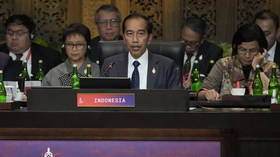
G20 summit host, Indonesian President Joko Widodo, has urged world leaders to avoid dividing the globe into blocs and launching a new cold war.
In his opening address to the gathering on Tuesday, the president, who goes by the nickname Jokowi, stressed that the world’s leading economies, comprising the G20, share a responsibility to humanity.
“Being responsible means creating not zero-sum situations, being responsible here also means that we must end the war. If the war does not end, it will be difficult for the world to move forward,” he said, in an apparent reference to the conflict in Ukraine.
President Widodo warned G20 leaders against ramping up global rivalries and returning to the form of confrontation that defined the second half of the 20th century.
“We should not divide the world into parts. We must not allow the world to fall into another cold war,” he urged his guests, calling for wisdom, leadership and cooperation.
The G20 summit has been largely overshadowed by the Ukraine conflict, which started almost nine months ago, also pitting Russia against the US and its allies, which have pledged to arm and fund Kiev “for as long as it takes” to defeat Moscow on the battlefield. They have also imposed harsh economic sanctions against Russia.
The sanctions have failed to garner support from some of the world’s leading economies, notably China, India and Brazil.
Beijing, which has criticized Moscow’s decision to send troops into Ukraine, has also blamed Washington’s actions and the expansion of NATO as root causes of the crisis.
The Indonesian leader called for immediate steps to address the shortage of food and fertilizer on the global market. Both issues have been exacerbated by anti-Russia sanctions. Moscow says it is largely unable to export grain and fertilizers, due restrictions affecting insurance for merchant ships and port services.
Before the G20 summit, President Widodo resisted pressure from Western nations to exclude Russian President Vladimir Putin from the gathering. Putin ultimately declined Widodo’s invitation, instead sending Foreign Minister Sergey Lavrov to head the Russian delegation.
On Tuesday, Ukraine’s President Vladimir Zelensky delivered a speech to G20 attendees via videolink. He addressed the “G19”, presumably disregarding Russian membership, and reiterated Kiev’s uncompromising position. He demanded a full pullout of Russian troops to pre-2014 positions, reparations, and other concessions before a peace deal can be signed.
Top spies from both sides met to discuss avoiding “miscalculations,” US National Security Council spokesman said
The recent unannounced meeting of top Russian and US spies in Ankara was meant to maintain dialogue between two powers, US National Security Council spokesman John Kirby told US media on Tuesday.
Speaking to Bloomberg, Kirby was asked to comment on the talks in Türkiye’s capital, which involved Sergey Naryshkin, director of Russia’s Foreign Intelligence Service (SVR), and CIA Director Bill Burns.
“This was really about keeping the channels of communication with Russia open on issues that affect both our security’s futures,” the official said, adding that Burns’ sit-down with Naryshkin was “all about routine channels of communication” that Washington has with Moscow at various levels.
Kirby noted that in recent weeks US Secretary of Defense Lloyd Austin and the Chairman of the Joint Chiefs of Staff Mark Milley spoke with their respective Russian counterparts. By doing so, the US is “making sure that… there won’t be any miscalculations,” the official said.
At the same time, Kirby didn’t say whether the parties discussed US citizens that are currently in Russian custody, noting that he was not present at the meeting. “The main purpose was to talk about issues around strategic stability,” he said.
Previously, the White House said that the Ankara talks didn’t have anything to do with the Ukraine conflict and revolved around nuclear weapons and US citizens that had been detained in Russia. Meanwhile, Moscow confirmed that the talks had indeed taken place, but refused to provide any more details.
Earlier this month, The Wall Street Journal reported that US National Security Advisor Jake Sullivan held behind-the-scenes negotiations with top Russian officials to decrease the chances of a broader conflict over Ukraine. At the time, Kremlin Press Secretary Dmitry Peskov said Russia had nothing to say about the report, adding that “Anglo-Saxon newspapers release a lot of hoax stories.”
READ MORE (75 Comments)
Vladimir Putin is absent from this week's G20 summit: What does it mean for the Russian President and the event itself?
"As Sergey Lavrov replaces the country's leader on the sunshine island, what do Russian experts think about the situation?
This week's G20 summit, in Indonesia, is unlikely to be a pleasant event for Russia. Information suggests that many of theevent’s participants intend to refuse to take part in photo-ops with representatives of Russia, and will even try to isolate them.
✓ If this speculation proves true, Russian Foreign Minister Sergey Lavrov will take the full brunt, as he will be the one leading the delegation. According to the Kremlin, Vladimir Putin has personally decided to skip the summit due to his busy schedule and the need for him to stay in Russia.
French President Emmanuel Macron has stated the need to continue dialogue with Russian President, German Chancellor Olaf Scholz admitted that "it would be good if Putin went," and Turkish leader Recep Tayyip Erdogan believes that the participation of his Russian counterpart would be appropriate.
All this is against the backdrop of China's support. The Washington Post has written that Western countries are alarmed by the partnership between Putin and Xi. The newspaper's sources do not think that Beijing will refuse to support Russia at the summit even after the meeting between Biden and and the Chinese head-of-state.
Wang Yi told his Russian colleague Sergey Lavrov that Beijing will work with Moscow
Beijing will cooperate with Moscow to build a multipolar world, Chinese Foreign Minister Wang Yi said on Tuesday, after meeting his Russian counterpart Sergey Lavrov on the sidelines of the G20 summit in Bali, Indonesia.
“China is ready to work with Russia and other like-minded countries to promote the development of a multipolar world, firmly support the democratization of international relations, and defend the international system based on the United Nations,” he said, according to remarks posted by the Chinese Foreign Ministry.
Wang’s phrasing echoes statements made by Russian President Vladimir Putin and Chinese leader Xi Jinping, when they met in Beijing in early February. Putin had also said that he and Xi “hold largely the same views on addressing the world’s problems.”
In a cordial meeting with his Russian colleague on Tuesday, Wang also said Beijing would “continue to take an objective and fair stand” on the conflict in Ukraine and “play a constructive role in facilitating peace talks.”
China also praised Russia’s “rational and responsible position” on the use of nuclear weapons.
Moscow has repeatedly and explicitly reaffirmed its commitment to the joint statement against nuclear war by the five major atomic powers, adopted in January, that nuclear war is unacceptable and should never be fought. That hasn’t stopped Western governments from accusing Russia of making nuclear threats, as US President Joe Biden did in his meeting with Xi on Monday.
While Xi’s remarks before and after the meeting with Biden expressed a desire to improve relations with the US, the Chinese president also clearly set out Beijing’s “red lines.” He warned the US against supporting separatists on the island of Taiwan and asked Washington to live up to its written commitments.
“A statesman should think about and know where to lead his country. He should also think about and know how to get along with other countries and the wider world,” Xi told Biden.
Lavrov is on the mission
Although several days have passed since Sergey Lavrov’s trip was announced, it is still unknown whether any bilateral meetings are planned for the Russian minister. In particular, Moscow has yet to mention a possible encounter with US Secretary of State Antony Blinken.
The main news about Lavrov in Bali, so far, was pushed by AP and some other Western outlets, on Monday, reporting that he had been taken to hospital with heart problems shortly after arriving.
Foreign Ministry spokeswoman Maria Zakharova said these reports are “top-level fake news”. The diplomat, who is also in Bali, said that she was reading the news with the foreign minister and they both “just couldn’t believe our eyes.”
Earlier she announced that Lavrov plans to speak at the summit about Russia’s initiatives to provide food and energy to foreign markets. In addition, Moscow’s agenda includes presenting its plan to enhance gas cooperation with Turkey.
In general, this fits into the official G20 agenda. According to preliminary information, the summit’s participants plan to discuss health issues, the transition to sustainable energy, and digital transformation.However, it is not known whether the 2022 Bali summit will be useful in helping the world take a step forward in overcoming the Ukrainian crisis, as some expect. So far, all the statements of Western leaders have indicated the opposite.
Western countries have been putting pressure on the summit’s host to exclude the Russian Federation from the event since Vladimir Putin announced the military operation in Ukraine last February. For example, the US president’s national security adviser, Jake Sullivan, said that Russia can no longer take part in the international community’s business “as usual,” while Polish Foreign Minister Zbigniew Rau even suggested that his country should take Moscow’s place in the G20 club.
Nevertheless, Indonesia sent an invitation to President Putin, despite the pressure.
✓ Meanwhile, Ukrainian President Vladimir Zelensky was also invited to take part in the meeting, despite the fact that his country is not a member of the G20, and not remotely close to meeting the criteria.
However, the leaders of the two countries wouldn’t have met in person in any case. Zelensky also refused to visit Bali but is expected to take part in the summit in an online format.
Expectations vs Reality
Oleg Barabanov, program director of Moscow's Valdai International Discussion Club, believes it's best to separate the standard issues on the G20 agenda from the expectations of possible agreements on Ukraine that could have been made on the sidelines with the participation of Vladimir Putin.
“The annual agenda of the G20 includes discussing the green economy, as well as the fight against poverty and inequality. One of the main issues that will be addressed in Indonesia this year is recovery from the Covid-19 pandemic. Though it’s a pity that Putin will not take part in this, these issues will nevertheless be considered with the participation of Lavrov,” Barabanov told RT.
On the other hand, he says various backstage discussions, meetings, and searches for compromise on the crisis could really have taken place in Bali.
“Obviously, nothing will happen now. And expectations that the G20 summit could lead to a breakthrough in settling the Ukrainian conflict were not justified,” the expert lamented.
Academic Director at the Higher School of Economics’ Centre for Comprehensive European and International Studies (CCEIS), Timofey Bordachev, in turn, warns against exaggerating the impact of Putin’s absence from the Bali summit.
“By and large, nothing will be lost because Putin’s not going to the G20. I don’t think the Chinese will be very happy about it. They want formats like this to continue, as the leadership role will gradually shift from the West to China. It will also be a little unpleasant for Western countries that wanted to put on a show in front of the Russian president. Now the performance will be staged in front of Lavrov. Russia won’t lose anything at all because it doesn’t face any issues dependent on the G20’s cooperation. I don’t think the Indonesians will be too offended either. They rebuffed all attempts by the US to exclude Russia, but they did it for their own sake, to show that Indonesia isn’t beholden to the United States,” Bordachev told RT.
Andrey Suzdaltsev, a political scientist, also believes that there was no great need for Vladimir Putin to go to the summit, but for a different reason.
“It doesn’t make much sense for Russia to go to the G20 now. For Putin to appear there, Russia needed to have some kind of advantage, be it military, economic, or political. For example, the advance in the Donbass, but definitely not the evacuation from Kherson. In addition, it’s necessary to have international support – here Russia at least has contacts with China and India. You also need to offer your own initiatives, bring a briefcase with you. Russia has failed to do this now, which means that it is, in fact, pointless to go. It’s one thing if you have a lot of authority, and another when you have some problems,” Suzdaltsev said.
Vladimir Zharikhin, deputy director of the Institute of CIS Countries, thinks it can be useful to communicate with the leaders of non-G7 countries at the G20. “The importance of the G20 will decrease somewhat due to the absence of Putin. No matter how many nasty things they throw at him, he’s one of the leading leaders of the world. Yes, Lavrov will be there. But, as the saying goes, sand is no substitute for oats. With all due respect to the Russian Foreign Minister, this, of course, still constitutes a downgrade in the level of representation, and a decrease in the significance of the G20. After all, they are going to discuss pressing world problems there, one of which is the wide conflict between Russia and the West. It is much more difficult to discuss this without Putin’s participation,” Zharikhin explained.
Where is the G20 Headed?
The G20 format was born in the late 1990s after the Asian financial crisis, when the mainly Western countries in the ‘Big Seven’ – the US, the UK, France, Germany, Italy, Japan, and Canada – realized that a number of large economies were not participating in discussions on global issues. The newcomers invited to the table include Argentina, Australia, Brazil, India, Indonesia, China, Mexico, Russia, Turkey, South Korea, South Africa, Saudi Arabia, and the European Union.
However, the format did not reach its current status until the next global financial crisis, in 2008-2009. Prior to that, the meetings had only included finance ministers and the heads of central banks. However, subsequently world leaders themselves met at the summits annually to consult, first and foremost, on financial and economic issues. In 2013, the G20 was held in St. Petersburg.
The goal of the format was to achieve global economic stability and to create conditions for sustainable growth, while reducing the risk that financial crises would occur.
The G20 countries are home to two-thirds of the world’s population. They also account for 85% of world GDP and about 75% of world trade.
Decisions of the G20 are by consensus and are recorded in a communiqué, but are not binding.
Russian experts have been skeptical about how effective the group has been in recent years.
“In general, both the G20 and the G7 stand for everything good against everything bad. Year in and year out, they publish beautiful communiqués calling for all the right things. But it’s difficult to say how much of this is actually implemented in real politics. Moreover, every year, a new chair country sets the tasks for the year, while ignoring what its predecessor had included,” Barabanov points out.
According to Bordachev, the last few years have betrayed the club’s lack of effectivity in solving the world economy’s most important problems.
“In recent years, it seems that everyone has been solving their problems individually. The format exists, and no one wants to abandon it because everyone wants a stage on which to speak out, but everyone really acts in their own interests. China is trying to gradually rebuild these institutions and organizations, which the West created with its own goals, according to its own vision. And now it’s important for Western countries to come out as a united front to show their unity to the world. But, of course, mistakes and problems that can’t be solved will not be recognized in the general communiqué,” he expects.
Zharikhin shares a similar point of view. In his opinion, all meetings and agreements have become devalued because “the world’s former leader, the United States, builds its policy as if in a game without rules.”
“Tomorrow they’ll say that they’ve decided otherwise – we remember how they’ve withdrawn from treaties and failed to fulfill their obligations. Objectively, all international organizations, starting with the UN, are losing their influence. But the point of participating in them still remains precisely for the sake of communicating with non-Western countries that are ready to seek compromise,” he believes.
Suzdaltsev agrees that there is not much life in G20 resolutions, since they contain mostly guidelines for the future.
“But there is a negotiating element at summits like these, and the G20 provides a forum for this. It’s still better than having a war,” he says."
By Maxim Hvatkov, a Russian journalist focusing on international security, China's politics and soft-power tools.
.jpg)
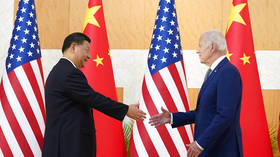

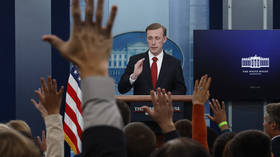


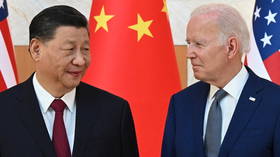
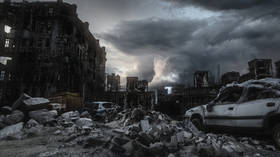
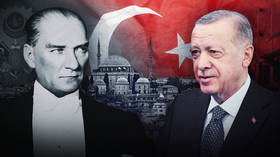
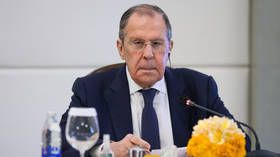
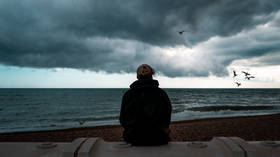


No comments:
Post a Comment